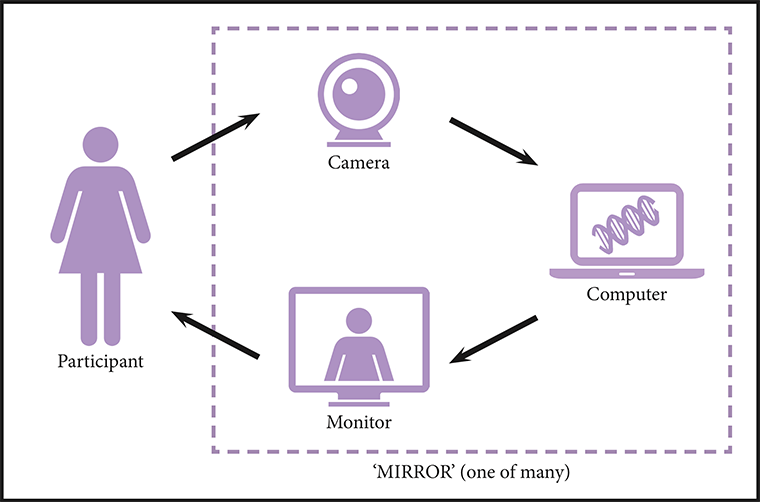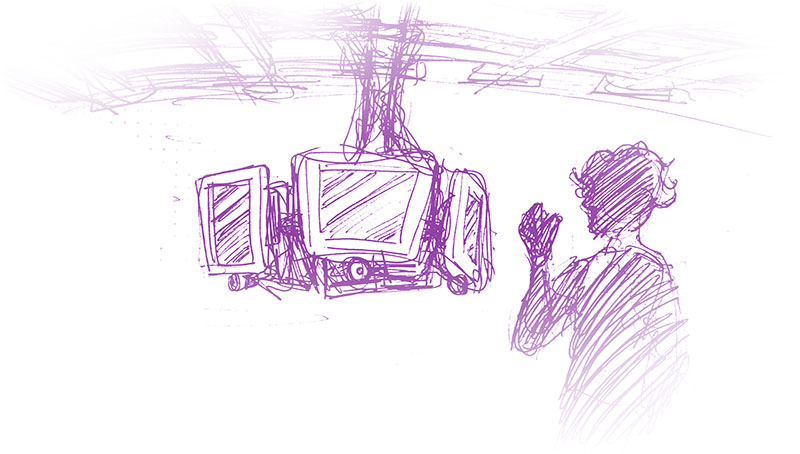Table of Contents
Evolving Mirrors
by Lex Moakler (lexmoakler.com)
Introduction
How do we relate to images of ourselves, when the technology we use to do so evolves faster than our biology? How do the ways we create, manipulate, and archive images shape our understanding of visual representations of ourselves?
Evolving Mirrors invites you to look at yourself, as seen through en evolving ecosystem of ‘mirrors’ that uses a real-time genetic algorithm to transform participants’ images in a virtual competition for the attention of curious onlookers.
Background
Genetic algorithms are used by Artificial Life (A-Life) researchers and artists to generate surprising solutions to complex problems. Such an algorithm encodes possible solutions as sequences of genetic information called genomes, and simulates an evolutionary struggle where only the fittest solutions survive and reproduce. How this fitness is defined—the fitness function—will determine which solutions prevail.
A-Life algorithms are typically designed to be very fast: millions of generations can be created and testing in mere seconds. In contrast, Evolving Mirrors is slow enough that participants can see new transformations be generated in real-time.
Figure 1 - System Overview
The artwork exists as a network of ‘mirrors’, each consisting of a camera, a computer, and a monitor. The camera’s video feed is used as input for the mirror’s image transformation as well as for tracking participant interaction. The computer transforms the source video based on the mirror’s genome, and displays it back to the participant via the monitor.



